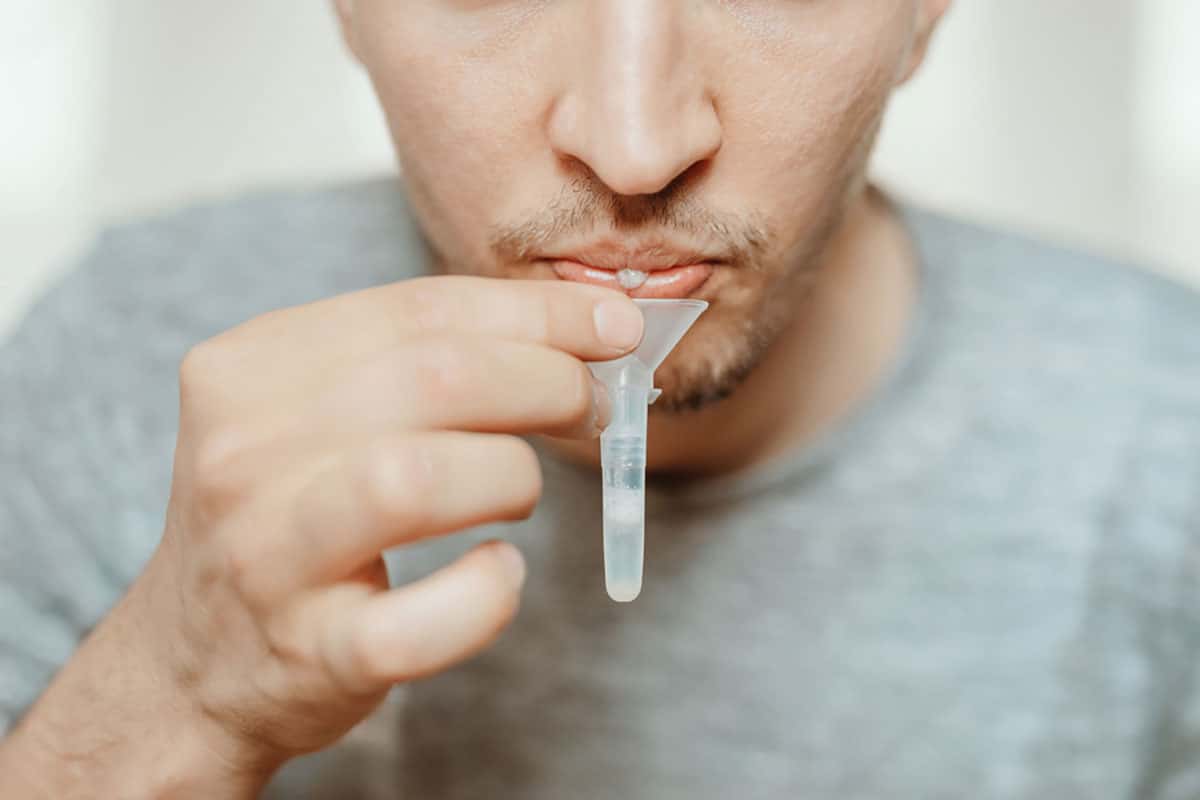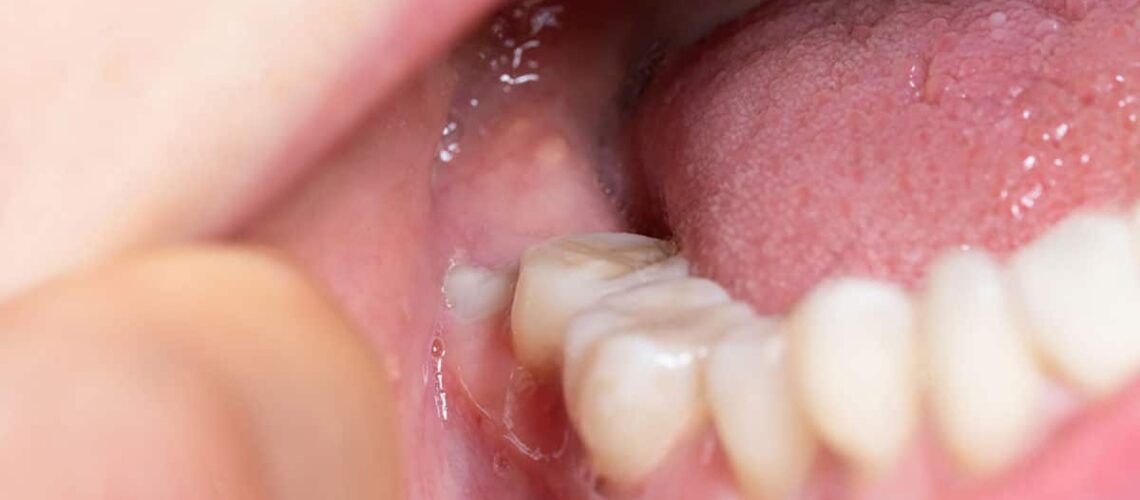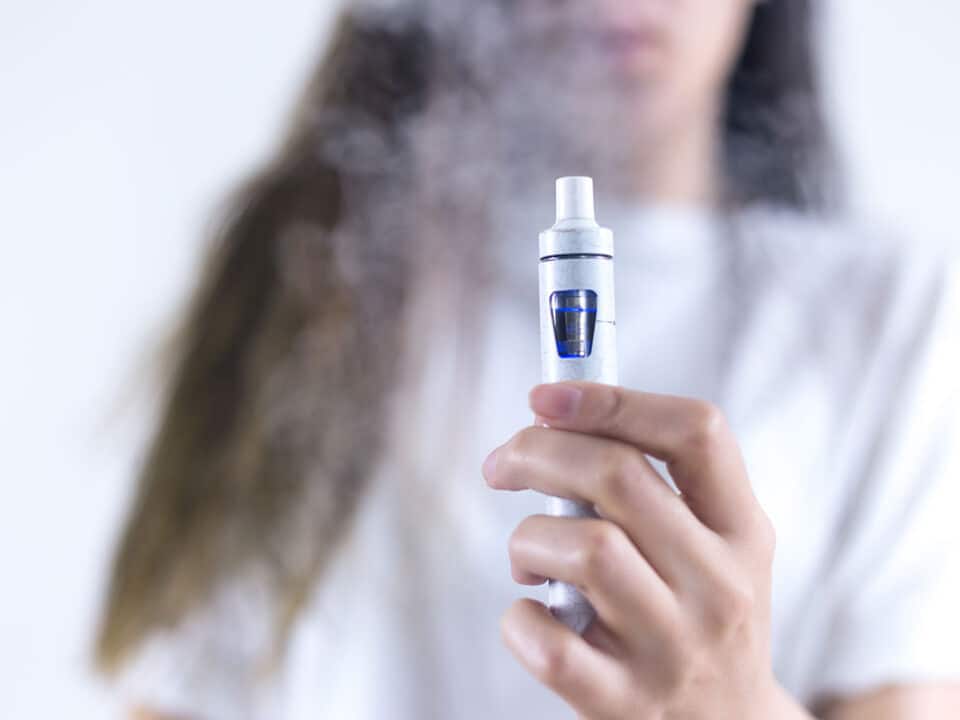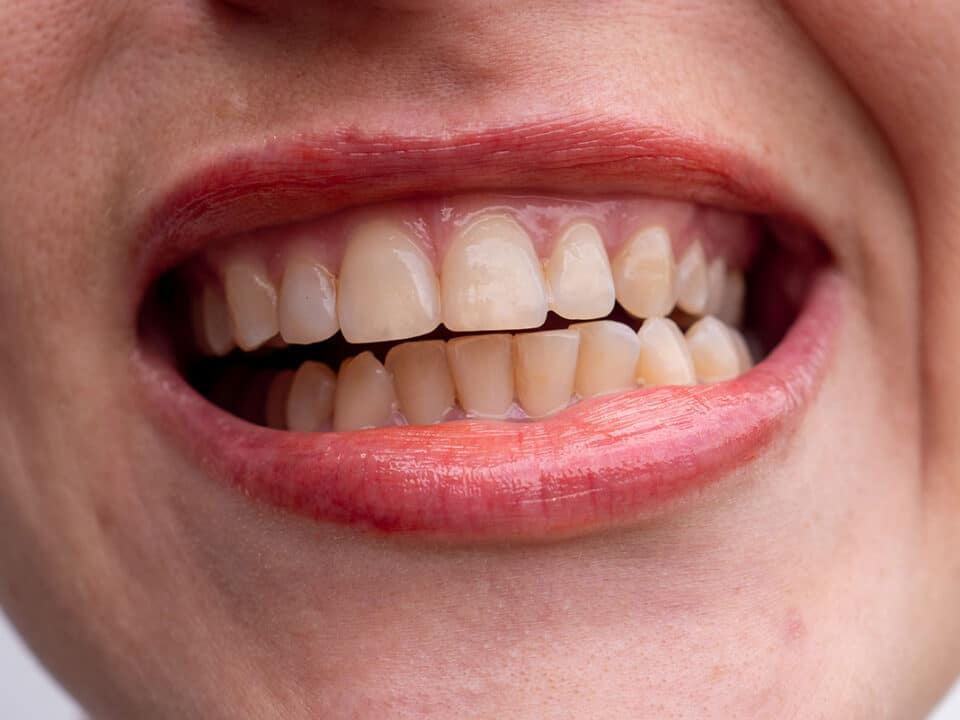We spend plenty of time brushing, flossing, and rinsing with mouthwash — yet rarely stop to appreciate saliva. That clear fluid we often overlook is one of the most powerful protectors of our oral ecosystem. Though made up of 98–99% water, saliva’s remaining 1–2% is a potent mix of minerals, enzymes, proteins, and antimicrobial compounds.
From neutralizing harmful acids, preventing cavities, and helping us digest food, to aiding speech and fighting bacteria, saliva is critical to oral health. If you’ve ever experienced dry mouth (xerostomia), you’ve felt the effects of inadequate saliva firsthand, and without enough saliva, bad breath, tooth decay, and gum issues come on fast.
In this article, we’ll explore:
- What saliva is and how it works
- How it protects teeth, gums, and overall oral health
- What happens when saliva dries up
- How to boost saliva production naturally
- Long-term solutions and dental tips for dry mouth
Let’s break down the science of spit — and why your oral health depends on it.
Table of Contents

What Exactly Is Saliva — and Why Does It Matter?
Saliva is produced by three pairs of major salivary glands (parotid, submandibular, and sublingual), as well as hundreds of minor glands in the mouth. In a healthy adult, these glands produce 0.5 to 1.5 litres of saliva per day — that’s up to 6 cups daily!
Its role? Everything from:
- Moistening your mouth
- Washing away food particles and bacteria
- Protecting your teeth with minerals
- Facilitating chewing, swallowing, and speech
- Beginning digestion
Most saliva is produced during eating, triggered by chewing or even thinking about food. At night, however, saliva production drops dramatically, which is why we often wake up with “morning breath.”
Why is saliva Important?
For starters, saliva is essential for maintaining the health of your teeth and gums. Dentists often refer to saliva as “the bloodstream of the mouth” because it delivers nutrients and protective agents to oral tissues much like blood does for the body. It also buffers harmful acids, defends against disease, cleans your mouth and helps heal wounds faster.
In short, saliva is the ultimate multitasker: it keeps your mouth comfortable, helps you enjoy food, protects against decay, and more.
Saliva Composition: The “Super Ingredients” in Spit
Though saliva is made up of 98-99% water, it is also loaded with powerful compounds. That 1–2% non-water portion includes:
- Mucins – lubricate the mouth, making speech and swallowing easier.
- Salivary Amylase – breaks down starches into sugars, aiding digestion from the first bite.
- Minerals (Calcium, Phosphate, Fluoride) – vital for tooth enamel demineralization.
- Antibacterial Agents – like lysozyme, lactoferrin, and IgA that kill or inhibit harmful microbes.
- Growth Factors – promote wound healing and tissue repair in the mouth.
This internal “mouthwash” works 24/7, adapting its content and flow depending on need. It doesn’t just rinse — it actively heals, protects, and balances.
How Saliva Protects Your Teeth (Nature’s Cavity Fighter)
a. Neutralizing Acids & Balancing pH
Each time you consume sugar or carbs, bacteria in your mouth produce acids that can erode enamel. Saliva, naturally alkaline and rich in bicarbonate, works like a buffer — neutralizing acids and restoring pH levels above the critical 5.5 threshold where enamel starts to dissolve.
b. Washing Away Food Debris and Microbes
Saliva acts like your mouth’s rinse cycle, sweeping away food particles and bacteria all day. Chewing triggers salivary flow, so snacks like apples or sugar-free gum not only clean mechanically but also chemically stimulate more spit.
c. Remineralizing Tooth Enamel
Tooth enamel loses minerals daily. Saliva replenishes them by supplying calcium, phosphate, and fluoride, helping rebuild microscopic enamel damage before it becomes decay.
💡 Enamel under attack = demineralization. Saliva = natural repair crew.
d. Fighting Harmful Bacteria
With its antimicrobial proteins and antibodies, saliva directly combats cavity-causing bacteria (like Streptococcus mutans) and fungi (like Candida). It also fosters good bacteria that maintain oral balance.
Saliva’s Role in Gum Health and Breath Freshness
a. Keeping Gums Clean & Comfortable
Saliva helps prevent gingivitis by clearing plaque and bacteria from the gumline. It also forms a protective film over oral tissues and supplies growth factors to heal micro-injuries.
Without saliva, gums become dry, sore, and more prone to inflammation and infection — setting the stage for periodontitis.
b. Banishing Bad Breath
Fresh breath depends on saliva. It dilutes and washes away volatile sulphur compounds and bacteria that produce them. This is why “morning breath” flares up when saliva slows overnight.
💡Low saliva = more odor-producing bacteria = chronic halitosis.
More Than Moisture: Saliva’s Other Crucial Functions
a. Aiding Digestion
Saliva starts digestion before food even hits your stomach. Salivary amylase breaks down starches into sugars, easing digestion and nutrient absorption.
b. Enhancing Taste and Sensory Perception
Flavour molecules need to dissolve in saliva to be tasted. Dry mouth dulls the taste, while saliva keeps taste buds hydrated and functional.
Saliva also delivers scent molecules to your nasal receptors, enhancing flavour perception via aroma.
c. Enabling Speech and Oral Comfort
Speech depends on well-lubricated lips and tongue. Without saliva, the mouth gets sticky, making articulation awkward and uncomfortable.
Saliva also cushions dentures and prevents friction sores for denture wearers.
d. Healing Wounds and Supporting Immune Defence
Saliva contains epidermal growth factor (EGF) and other tissue-repairing proteins that speed up oral healing. It also traps viruses and microbes, aiding immune defence against infections like thrush.

What Happens When Saliva Runs Dry? Understanding Xerostomia
Dry mouth (xerostomia) occurs when saliva production is reduced. Common symptoms include:
- Sticky or dry mouth sensation
- Frequent thirst
- Trouble swallowing or speaking
- Bad breath
- Altered taste
- Dry, cracked lips or tongue
- Increased plaque and cavities
Consequences of Low Saliva:
Tooth Decay: Acids aren’t neutralized without buffering or cleansing, and food debris sticks around. This allows bacteria to thrive, causing an increased risk of cavities and gum disease. It also causes the enamel to erode faster.
Gum Disease & Infections: When saliva is low, plaque builds up rapidly along the gums, increasing the risk of gingivitis and progressing to periodontal disease. It also raises the chances of oral infections like thrush (Candida overgrowth), mouth sores, and cracked mouth corners (angular cheilitis). In short, dry mouth creates an ideal environment for germs that healthy saliva typically keeps in check.
Less saliva = more plaque = higher risk of gingivitis, periodontitis and other infections.
Speech & Eating Problems: Without saliva, chewing and swallowing dry or hard foods becomes difficult, leading people to avoid certain textures. This can result in poor nutrition or weight loss. Severe dryness may also cause slurred speech or frequent water sipping, affecting confidence in social and professional settings.
Enamel Erosion & Sensitivity: If saliva production is reduced, acids from foods (or even from the stomach, in acid reflux) can linger and erode enamel, leading to sensitive teeth. Teeth may feel more sensitive to hot or cold when the protective salivary coating is gone.
Reduced Quality of Life: Dry mouth affects more than just oral health — it impacts daily comfort, confidence, and quality of life. Constant thirst, bad breath, and difficulty speaking can stress social and professional interactions. Food loses flavour, chewing becomes harder, and dentures may be uncomfortable, especially for older adults. Many rely on water or sugar-free lozenges to manage. It can even disrupt sleep and lead to costly dental problems, adding emotional and financial stress. In short, saliva is key not just to oral health, but to overall well-being.
Why Does Dry Mouth Happen? Common Causes of Low Saliva
Dry mouth (xerostomia) has many possible causes, often overlapping. Understanding them helps you take effective steps toward relief. Below are the most common contributors:
Medication Side Effects
Medications are the leading cause of chronic dry mouth today. Over 500 drugs list it as a side effect, including:
- Antihistamines (e.g., Benadryl)
- Antidepressants and anti-anxiety meds
- Blood pressure meds (especially diuretics and beta blockers)
- Decongestants and cold medicines
- Painkillers and muscle relaxants
These drugs interfere with nerve signals that activate saliva production. Older adults are especially affected due to polypharmacy (taking multiple medications).
Cancer treatments like chemotherapy or head and neck radiation can also damage salivary glands or change saliva composition, sometimes permanently.
Health Conditions and Diseases
Several medical issues can directly or indirectly reduce saliva flow:
Sjögren’s syndrome – An autoimmune disorder that attacks salivary and tear glands, causing chronic dryness.
Diabetes – High blood sugar and metabolic changes can lead to dehydration and altered saliva quality.
Neurological disorders – Parkinson’s, Alzheimer’s, or stroke can affect salivary nerves or lead to mouth breathing.
Thyroid conditions – Sometimes linked to gland dysfunction.
Depression and anxiety – Stress inhibits saliva; medications often worsen it.
Dehydration – From illness, exercise, or not drinking enough fluids.
Mouth breathing or snoring – Especially common at night; dries tissues faster than saliva can replenish.
Lifestyle Factors: What You Eat, Drink, and Inhale
Every day habits can reduce saliva or worsen dryness:
Caffeine – Coffee, tea, and energy drinks are diuretics and mildly drying.
Alcohol – Both drinks and alcohol-based mouthwashes reduce saliva and dehydrate.
Tobacco & vaping – These irritate salivary glands and impair saliva flow; cannabis (“cottonmouth”) has a similar effect.
Sugary or acidic foods/drinks don’t directly cause dry mouth but worsen its effects by increasing acid attacks and cavity risk when saliva is low.
Low water intake – A simple but common issue; even mild dehydration can cause dry, thick saliva.
Aging and Hormonal Shifts
Aging alone doesn’t cause dry mouth, but associated factors do: more medications, chronic illnesses, less efficient glands, and hormonal changes (especially during menopause).
Postmenopausal women often report dry mouth or burning sensations, partly due to decreased estrogen. Seniors may also be chronically dehydrated, worsening the issue.
Studies show:
~30% of adults over 65 have dry mouth
~Up to 40% of those over 80 are affected
While not all causes are avoidable, many are manageable. Hydrating more, adjusting lifestyle factors, and working with your healthcare providers can significantly improve saliva flow and oral comfort.

How to Boost Saliva Flow and Keep Your Mouth Healthy
Good news: there are plenty of simple, effective strategies if you’re dealing with dry mouth or want to support your saliva’s protective powers. Here’s how to keep your mouth well-hydrated and cavity-resistant:
Stay Hydrated – Drink Water Regularly
Drinking more water is one of the easiest ways to combat dry mouth. Proper hydration supports consistent saliva production and helps thin out thick saliva.
- Sip water throughout the day — don’t wait until you’re thirsty.
- Keep a water bottle handy, especially in dry climates or if you breathe through your mouth at night.
- Use a humidifier to reduce nighttime dryness.
- Infuse water with citrus or cucumber if plain water doesn’t appeal to you.
Avoid sugary drinks. They might briefly stimulate saliva but can worsen decay risk, especially when saliva is already low.
Chew Sugar-Free Gum or Suck on Lozenges
Chewing stimulates saliva production — it’s a natural reflex. Sugar-free gum (especially with xylitol) is a wise choice, since xylitol also helps fight cavity-causing bacteria.
- Chew gum after meals to boost saliva and help neutralize acids.
- Sugar-free lozenges or candies can also help (look for xylitol or sorbitol-based options).
- No gum? Try snacking on crunchy, water-rich foods like apples, carrots, or celery — they stimulate saliva and help clean teeth.
Always choose sugar-free options — sugary gum or candy can worsen dry mouth by feeding bacteria.
Cut Out Drying Habits
Certain habits dry out your mouth — ditching them can improve saliva flow naturally:
- Limit caffeine and alcohol — both are dehydrating. Pair each cup of coffee or drink with a glass of water.
- Quit tobacco and vaping — they irritate salivary glands and reduce saliva production. Even reducing use can help.
- Reduce sugary or acidic foods/drinks — they worsen acid attacks when saliva is low.
- Rinse with water after acidic meals or sweets.
- Be cautious with spicy or salty foods — they can irritate dry tissues. Use sauces or broths to make food easier to chew and swallow.
Small changes add up — a saliva-friendly diet and lifestyle can make a big difference in comfort and oral health.
Use Dry Mouth Products
If natural methods aren’t enough, several over-the-counter products are designed to help:
- Artificial saliva (sprays, gels, rinses): Brands like Biotène offer options that soothe dryness, especially at night.
- Oral moisturizers: Use throughout the day for quick relief.
- XyliMelts: Adhesive disks that stick to your cheek or gums, slowly releasing moisture overnight.
- Dry mouth mouthwashes: Choose alcohol-free, xylitol-based rinses — alcohol-based mouthwashes make dryness worse.
These products provide short-term relief and may need to be reapplied throughout the day. Try a few to see what works best for you.
Don’t Forget Fluoride
Saliva helps protect enamel, but if it’s lacking, your teeth need backup.
- Use high-fluoride toothpaste (your dentist can prescribe stronger versions).
- Consider fluoride rinses or in-office treatments.
- Ask about calcium-phosphate products that remineralize enamel and protect against decay.
Talk to Your Dentist or Doctor
If dry mouth is frequent or severe, don’t go it alone. A professional can:
- Check for decay, gum issues, or fungal infections caused by dry mouth.
- Recommend high-fluoride products or prescribe saliva-stimulating medications like pilocarpine or cevimeline.
- Review your medications — they might adjust dosages or suggest alternatives with fewer drying side effects.
- Offer DIY solutions like baking soda rinses (½ tsp baking soda in a cup of water) to balance mouth pH and protect enamel.
Your dentist may also suggest more frequent checkups, fluoride trays, or protective pastes to strengthen enamel.
You don’t have to live with dry mouth — and you’re not alone. Many causes are manageable with hydration, healthy habits, and a few innovative products. If home strategies aren’t enough, your dental or medical team has tools that can help.
Quick Takeaways: The Importance of Saliva
- Saliva is essential for oral health — it cleans, protects, heals, and supports digestion, taste, and speech.
- We produce 0.5–1.5 liters per day, mostly during eating or chewing.
- Enzymes (e.g., amylase) to begin digestion
- Minerals (calcium, phosphate, fluoride) to remineralize teeth
- Antimicrobials (like lysozyme, IgA) to fight bacteria
- Growth factors to promote wound healing
When Saliva Runs Low (Dry Mouth/Xerostomia)
Increased risk of:- Cavities, enamel erosion, and gum disease
- Oral infections (e.g., thrush, cracked mouth corners)
- Bad breath, altered taste, and difficulty eating or speaking
- Denture discomfort and poor nutrition
- Reduced quality of life and social confidence
Common Causes of Dry Mouth
- Medications – Antihistamines, antidepressants, blood pressure meds, etc.
- Health conditions – Sjögren’s, diabetes, Parkinson’s, thyroid disorders
- Lifestyle habits – Smoking, vaping, caffeine, alcohol, sugary/acidic diet
- Dehydration, mouth breathing, and snoring
- Aging & hormonal shifts – Especially post-menopause
How to Boost Saliva Flow
- Drink water regularly – Don’t wait until you’re thirsty
- Chew sugar-free gum or use xylitol lozenges
- Eat crunchy fruits/veggies like apples or carrots
- Cut drying habits – Limit caffeine, alcohol, smoking, and acidic foods
- Use dry mouth products – Biotène, XyliMelts, alcohol-free rinses
- Protect teeth – Use fluoride toothpaste or rinses
- See a dentist or doctor – For prescription saliva stimulants or product recommendations
Why Saliva Deserves Your Attention
Saliva may not be flashy, but it’s essential. From your first swallow in the morning to your last bite at night, it works around the clock — protecting your teeth, aiding digestion, keeping your breath fresh, and maintaining comfort.
We often take saliva for granted until it’s gone. But as you’ve seen, it plays a critical role in oral health by neutralizing acids, repairing enamel, fighting germs, and keeping gums and breath in check. It’s the quiet guardian of your smile.
If you’re experiencing dry mouth, don’t ignore it. Even small changes — like drinking more water or chewing sugar-free gum — can help. And if symptoms persist, your dentist or doctor can offer personalized solutions, from fluoride treatments to saliva-stimulating prescriptions.
In the bigger picture, saliva reminds us how smart and self-sustaining our bodies really are. By supporting your saliva flow, you’re directly supporting your oral health, confidence, and quality of life.
So next time you enjoy a flavorful meal or feel your mouth refresh itself with a swallow, take a moment to appreciate your spit — it’s been working hard for you all day.
References
American Dental Association – MouthHealthy
“Saliva”
https://www.mouthhealthy.org/all-topics-a-z/saliva
National Institute of Dental and Craniofacial Research (NIH)
“Saliva Research Initiatives”
https://www.nidcr.nih.gov/research/research-priorities/saliva-research
Ontario Dental Association
“Dry Mouth” (Oral Health Basics)
https://www.oda.ca/oral-health-basics/dry-mouth
WebMD – Oral Health
“Saliva and Your Mouth: Function of Saliva in Oral Health”
https://www.webmd.com/oral-health/guide/saliva-and-your-mouth
British Dental Journal – Team (Dodds et al., 2015)
“Saliva: A Review of Its Role in Maintaining Oral Health and Preventing Dental Disease”
https://www.nature.com/articles/sj.bdj.2015.865
Check us out on Facebook and Twitter for daily information about Oral Health from Martindale Dental, or visit our offices in Hamilton and St. Catharines.
Have more questions?
Please contact us for all inquiries or to book an appointment with one of our convenient clinic locations. We look forward to hearing from you.




